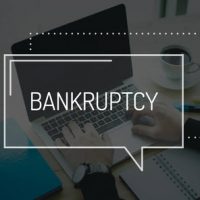Will Filing for Bankruptcy Hurt My Social Security Benefits?

Increasingly, more seniors are filing for bankruptcy. Their reasons vary. For some, medical expenses are eating up a larger share of their income, while many try to support family members. At the same time, retirees have a frayed safety net as few have the type of generous pensions that their parents enjoyed a few decades ago. Unsurprisingly, more seniors are feeling financial strapped and need help.
Bankruptcy is certainly an option, but many seniors are afraid that filing for bankruptcy could hurt their Social Security benefits. Fortunately, your benefits are usually safe. Below, we explain how Social Security will come into play in your bankruptcy.
Chapter 7 Bankruptcy & Social Security Benefits
A Chapter 7 bankruptcy helps those debtors who cannot afford to pay their unsecured debts, like credit cards. You can wipe out most of these debts very quickly by filing for this liquidation-type bankruptcy. There are two ways Social Security income comes into play in a Chapter 7.
First, your income cannot be too high to qualify for Chapter 7. You must pass a means test, which usually looks at your income compared to the median income for a family of your size in your state. All kinds of income counts, but Social Security benefits do not. So you won’t fail to qualify for Chapter 7 protection because of your benefits.
Second, in a Chapter 7 bankruptcy, the trustee can take nonexempt property and use it to repay creditors. An example: cash in a bank account. However, Social Security benefits are exempt, so the trustee cannot take them.
Nevertheless, there is a possible complication: you need to be able to prove how much of the cash in your bank account comes from Social Security if you have commingled them with other income. For this reason, many seniors who are thinking about retiring will open a separate bank account into which they deposit their Social Security benefits.
Chapter 13 Bankruptcy & Social Security Benefits
Social Security benefits will also come into play in Chapter 13 bankruptcies, which is another popular option for consumers. Of course, in a Chapter 13, the trustee will not seize any property so long as you stick to a repayment plan. As part of this plan, a debtor contributes their disposable income to their unsecured creditors and any unpaid unsecured debt gets wiped at completion of the plan.
Must you include Social Security benefits as part of your disposable income? Actually, there is no clear answer. The law excludes Social Security benefits from your monthly income. However, the law also requires that you make a “good faith” effort to use all disposable income to repay creditors. Some trustees will expect that you use Social Security benefits, and some judges support that decision. You should consult with an experienced bankruptcy attorney who can review your case.
South Florida Bankruptcy Lawyers
If you are receiving Social Security or Supplemental Security Income (SSI), meet with an attorney if you are trying to manage debt. In most situations, our clients have been able to preserve their benefits, but you need to be proactive.
Reach out to us today. One of the South Florida bankruptcy attorneys at Nowack & Olson can meet with you to discuss your case. Please call 888-813-4737 or send us an online message.
Resource:
uscourts.gov/services-forms/bankruptcy/bankruptcy-basics/chapter-13-bankruptcy-basics
